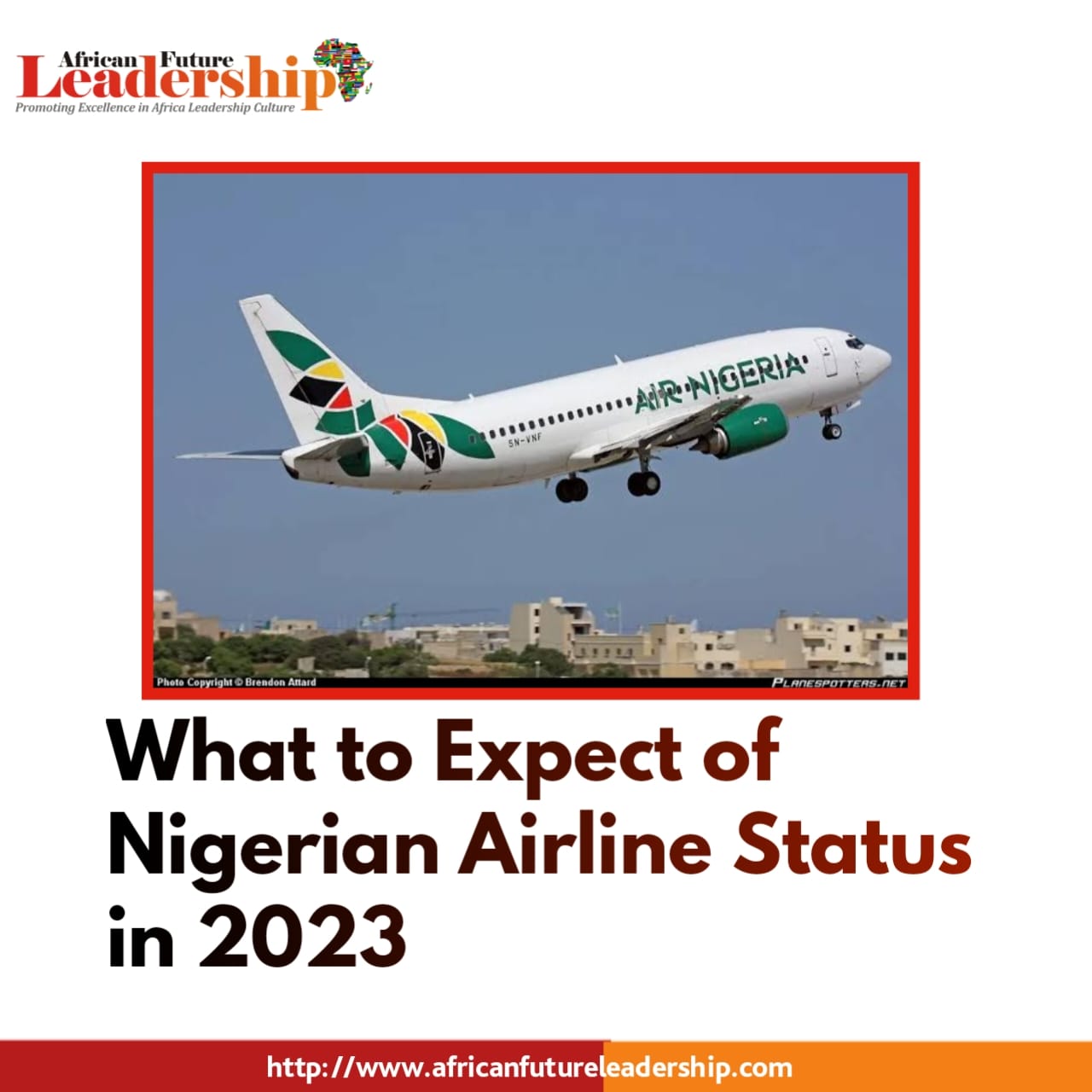By our Correspondent
Following a series of mismanagement and incompetencies, Nigeria has over the last 70 years, been aiming to develop a healthy airline industry, originally as a one national airline construct, as so many other nations, then leaning towards a minority share with reputable airlines, now focusing on a primarily private airline industry, as customary in most economies around the world.
Rather bemsingly, the only successful airlines in Africa are currently all owned by their respective governments: Ethiopian Airlines, Royal Air Maroc, Egypt Air. Most other national carriers owned by their governments (i.e. Kenya Airlines, South African Airways, Air Mauritius) are struggling to survive. What is the truth then, looking at this airline business, specifically in Africa.
But in Nigeria, the largest African nation by people, all initiatives to launch a sustainable National Carrier were doomed to fail. Nigeria Airways, founded in 1958, was the longest symbol of Nigerian national pride. This author counted some 130 AOC (Air Operator’s Certificate) holders in Nigeria, which went under in those 70 years of Nigerian airline industry, assuming this is a world record. Many of these 130 airlines were only flying for a few years, after spending lots of money (an airline launch costs at least 150M USD today), energy and disappointed hopes. Nigeria Airways was the longest existing airline so far, shut down in 2003, after 45 years in the domestic, regional and international skies.
READ MORE: Caution: We Must Avoid Election Machine Poll-Counting Fraud
Key reason for the demise of Nigerian Airways was the involvement of the Nigerian government, dictating fares, rules and free tickets for many. No airline can survive such intervention in the revenue creation. Sucking the lifeblood out of an airline, which has critical costs in the US dollar (aircraft leases, fuel, foreign fees), is a sure recipe for failure.
As was the case, the then government was no longer able to substitute such failure. What happened with the next hope of a successful Nigerian airline project, Virgin Nigeria? An agreement for Virgin Nigeria, to use the same terminal for domestic and international operation in Lagos, was no longer honoured by the new government elected in 2007.
And eventually, the 51per cent government majority share in Virgin Nigeria was left with the pull-out of Virgin’s 49 per cent, and with it the loss of the international relations and the Virgin supplied aircraft. Successor Air Nigeria was not able to survive without the Virgin assets and expertise.
The question is, why is Ethiopian Airlines successful then as a 100 per cent government-owned airline? Not a short story. Over 70 years, it grew mainly organically, slowly and with realistic budgets and expectations. The main difference was that the management, still led today by the highly regarded Girma Wake as chairman, was never directed by the government and by the inevitable changes of governments in a democracy.
As at today, Ethiopian Airlines is the leading African Airline, with a 20 per cent profit margin and a strategic plan to double its fleet of 130 aircraft by 2035. Vision, strategy, and a highly competent management governed by a Board of experts is the key for success. Disruptive innovations, adjusting to the fast changes in aviation (for example, ET’s new cargo focus during the years of COVID), lean cost structures and as a reliable contractual partner with its lenders and aircraft lease companies, have made Ethiopian Airlines a valuable African airline.
One therefore wonders: Is this possible in Nigeria as well? The Buhari administration, early on in its life, agreed on an aviation roadmap with a national airline, a leasing company, a maintenance company, and an aviation university as its key components. Under the Minister of Aviation, Hadi Sirika, all these roadmap projects are well under way, proof of a successful strategic political direction of the government. It is important that the next elected government continues this direction and present a stable aviation industry in Nigeria to the world, based on international aviation laws and supportive political governance.
All along, The Private Public Partnership (PPP) concept, which governs all these aviation projects, ensures that it is not the government’s and taxpayers’ money, which the success of these aviation companies is based on, but a consortium of industrial investors, carefully selected by the independent Infrastructure Concession Regulatory Commission’s (ICRC) governed privatisation process. This way the Government has initiated its political strategy to create a profitable aviation industry in Nigeria but sustain from political influence and the reliance on taxpayers’ money.
Presently, the African continent is looking into a brighter future, and it is expected that the aviation industry is going to grow rapidly. Airlines will be a key infrastructure development for the continent, driven by the African Union’s Agenda 2063. African free trade, combined with an open sky for African based airlines is the prerequisite for this development, which shall improve the infrastructure of the continent and contribute well above five per cent to the country’s Gross Domestic Product, but also create tens of thousands of jobs. The Single African Air Transport Market (SAATM) will be the frame for the success of those African airlines, which get it right. Serving not only their own country but many of the 54 African nations, as flying between those nations will be enabled by SAATM. It is high time that Nigeria therefore has a strong domestic airline to cope with the SAATM challenges of an Africa wide competition.
READ MORE: Ugandans, Japanese Relations Boost Skills Academy
In the meantime, the existing airlines in Nigeria are organised as the Airlines of Nigeria (AON) and Nigeria Air, the new National Carrier, has meanwhile applied for its membership as well, becoming a respected party of the common interests of the Nigerian airline industry. Some member airlines objected recently against the Ethiopian shareholding (49%) in Nigeria Air, starting a court case. The Aviation Union called this recently an unpatriotic attack on the interests of Nigerian aviation.
Then of course, at the end, Nigeria Air will be launched, the AOC application is in ‘phase three’ at Nigerian Civil Aviation Authority (NCAA), the launch is very near. The PPP process governed by ICRC is also about to close, with the Federal Executive Council’s approval of the contracts with the investor consortium to be signed shortly. The decision process of selecting the preferred bidder consortium of respectable Nigerian owners and Ethiopian Airlines was completely transparent and managed by the ICRC governed PPP procedures.
The anticipated Nigeria Air will be a new competitor in the Nigerian market, adding to the existing airlines. In short, the new year 2023 will have added choices for domestic flights for all customers, soon also on the regional and international markets.




